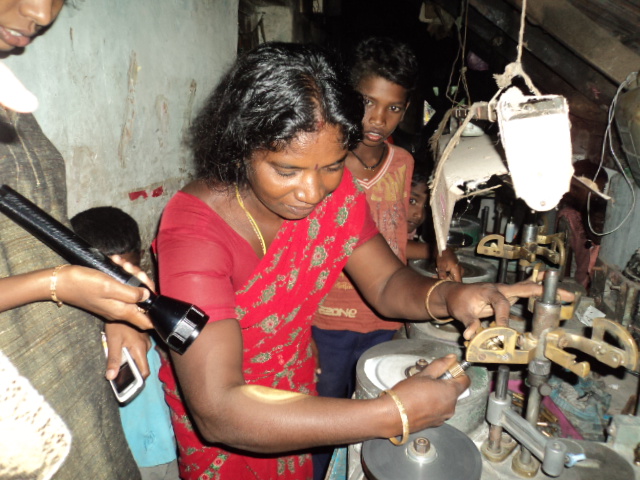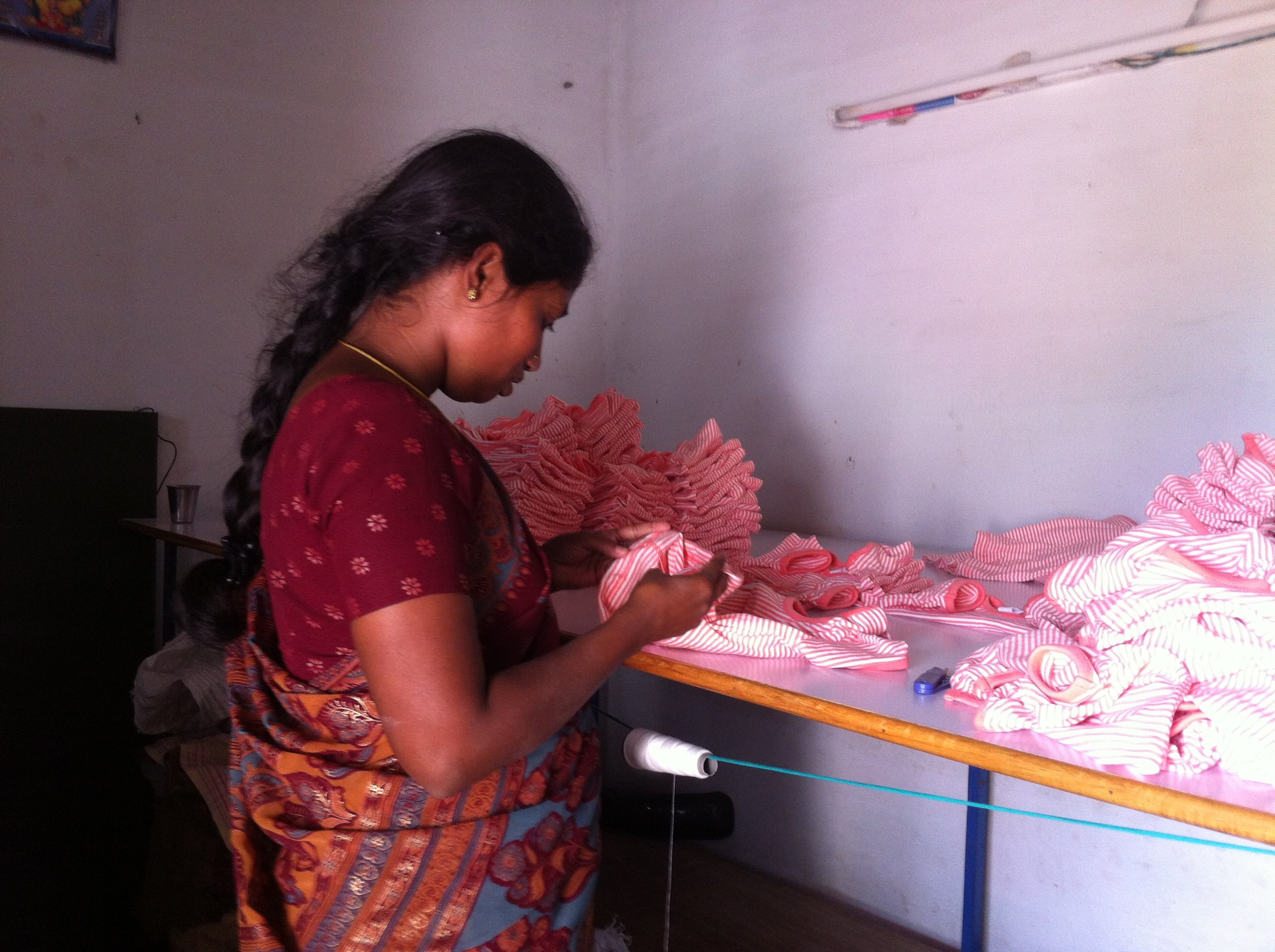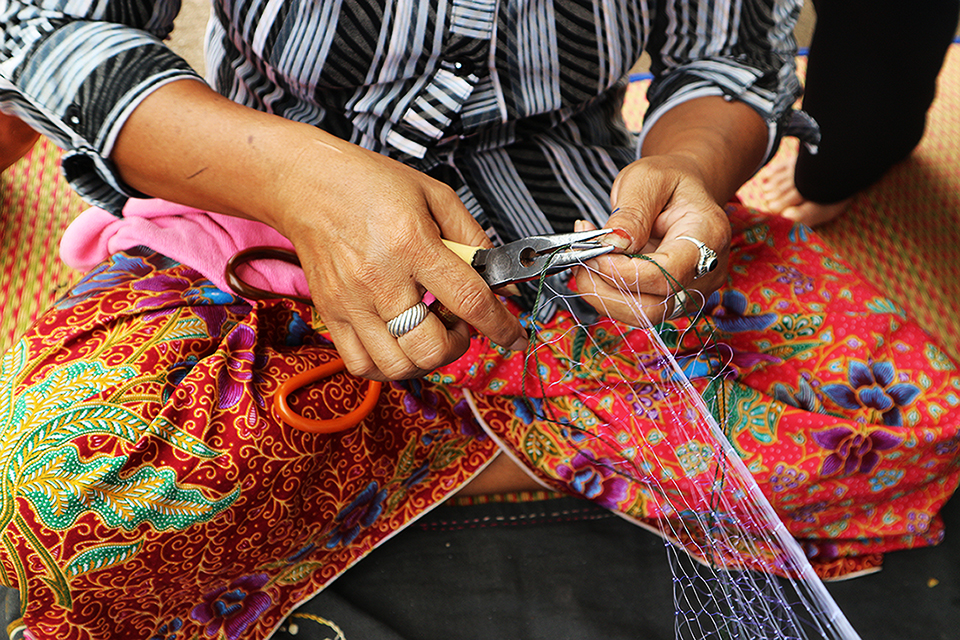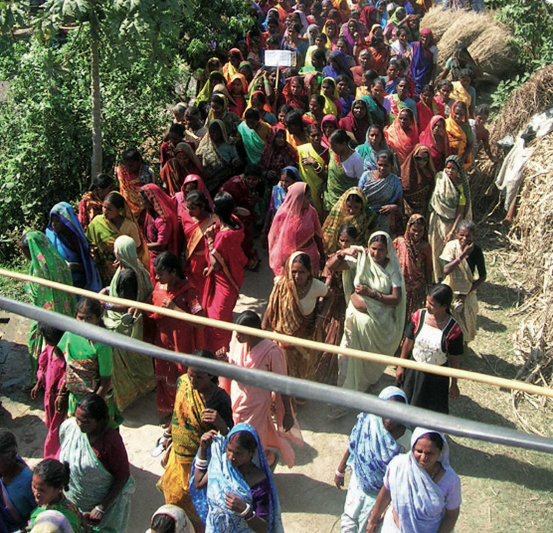Awareness of poor labour conditions for workers in global supply chains has grown over the last years. Fatal factory collapses such as the one at Rana Plaza in 2013, shone a much-needed light on the exploitative and hazardous labour conditions that factory workers endure. Still in the dark, however, is another tier of our global workforce – homeworkers.
Homeworkers are paid to perform work from home. They are typically women who are also expected to raise children, look after the family and care for others. Their work occurs at the bottom of long supply chain, and it is not regulated. This leaves them vulnerable to occupational health and safety hazards while working for low piece rates. As a consequence, they are trapped in a cycle of poverty with little to no time or resources to do anything else.
For most homeworkers, this is their only source of income. Abolishing homework is therefor not an option. Instead, we need to bring justice and equality to their workplace – their homes. Current approaches aimed at improving the lives of homeworkers fail to do this because they do not address the structural causes of the injustices felt by homeworkers – patriarchy and capitalism.
It is vital to understand these structures to develop and implement initiatives that would improve the lives of homeworkers. In our latest book ‘Homeworking Women’, we propose a gender-justice approach to do just this. The proposal is based upon lessons from historical and recent examples of research, regulation, campaigning and organising of homeworkers.
The suggested approach highlights four dimensions of gender-justice that are clearly related. The first one is recognition which refers to issues related to the social acknowledgement of homeworkers, valuing their work and making them visible. The second is representation which is about self- and collective advocacy; activism and resistance. The third dimension, rights, refers to ensuring the basic labour and human rights of homeworkers. The final one, redistribution, is about challenging and correcting institutional and structural inequalities and injustices.
A key finding in our book is that the collective organising of homeworkers is the only pathway for achieving positive outcomes in all these four dimensions of justice for homeworkers. Homeworkers need to organise to address the imbalances created under capitalism and patriarchy, such as increasing homeworker voice, their capacity to participate in civil society and ability to renegotiate their social, political and economic conditions, supported by sympathetic groups and organisations. Researchers, government, corporations, unions, NGOs, and social movements actors can take action to support homeworkers to achieve this.
We need to translate this theory into practice and challenge the prevailing notion that it is not possible to organise homeworkers. To do this, a variety of actors, including NGO’s, unions and corporations must come together and take action to better protect homeworkers.
To start this work, we suggest the following:
Researchers can support homeworkers by:
Collaborating with NGOs and unions to map supply chains all the way to homeworkers to make them more visible.
Studying the different aspects of patriarchy and capitalism that contribute to the exploitation of homeworkers.
Governments can improve homeworkers recognition and rights:
Legislating to so that informal workers are covered by labour law.
Ensuring that homeworkers are able to collectively bargain.
Administering economic justice programs that overcome disadvantage and the effects of invisibilisation homeworkers experience.
Corporations can recognise homework in their supply chain
Mapping their supply chain to find out where homework is occurring.
Recognising homework as part of the supply chain and work to improve the working conditions rather than prohibit homework due to perceived reputational risk.
Committing to an engagement approach to improving homeworkers working conditions.
Conducting ongoing education of suppliers.
Collaborating with unions, labour NGOs, and workers to respect freedom of association and improve supply chain transparency.
Social movement campaigns aimed at consumers can support homeworkers by:
Talking to homeworkers and taking up workers concerns.
Conducting campaigns aimed at corporations and consumers to support homeworkers to improve their collective agency and organising capacity.
Unions and labour NGOs can support homeworkers by
Improving homeworkers skills and capacity training to become leaders of their own organisations/unions and support to develop their own strategies to represent themselves.
Supporting homeworkers to overcome challenges they face as isolated and marginalised workers.
Improving their awareness of issues for informal women workers doing working paid and unpaid work.
Making gender justice a key aspect of their strategies.
We cannot offer a detailed and perfect roadmap to get us there, neither do we want to. Our wish, however, is that you join us in shining a light on a workforce that up until now has been left in the dark.
You can buy our book and learn more about the gender justice perspective here.













